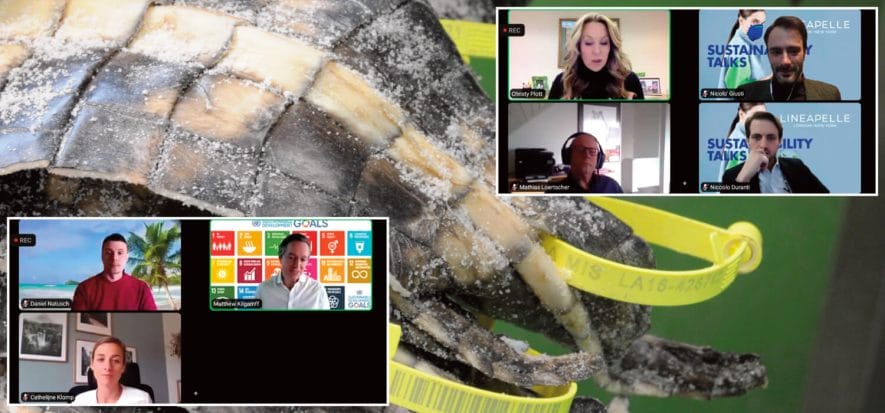At some point of the debate, the question becomes very direct: is it ethical to use exotic leather in fashion? The answer is yes. It is, according to the scientists currently working on preserving animal species. It is, according to LVMH and Richemont. Cathelijne Klomp and Matthew Kilgarriff, respectively manager of the Environment Development Department of the French conglomerate and director of the CSR at the Swiss one, are sure. Structuring a safe and certified chain for exotic leather is a guarantee for the animal kingdom, its habitat and local communities working in the segment.
LVMH and Richemont
Arnault’s Holding believes that ethicality for exotic leather is first and foremost a matter of best practices and structural investments. “Animal welfare is one of the main interests for LVMH – explains Klomp, explaining her view during the last LP Sustainability Talks -. We have created many sustainability programs for our brands. We set goals and utilize tools to achieve them. We implemented internal protocols, invested in the supply chain, created an audit program to be sure to maintain open dialogue with our suppliers. We work with associations and even competitors of ours, because our goal is to improve the entire chain”.
Using certain material can, nevertheless, cause hostility at this time, from a small section of the public. “We make efforts to be truly sustainable – answers Klomp -, aware that we have a responsibility towards local communities: our decisions have an impact on their economy. We believe in freedom of choice for our designers and clients”.
Conservation projects
Daniel Natusch, member of the IUCN group (International Union for Conservation of Nature), explains the matter further. “Some say that some materials simply shouldn’t be used, and actually believes that, in that case, the animals are saved.
It’s just the opposite: in doing so even more animals would be dead”. Why? “Because conservation projects are expensive and the species to protect are many – he continues -. Regulations to farm crocodiles and using its byproducts, such as meat and leather, has allowed for the recovery of the population number and the tutelage of the species’ habitat.
The truth is that some people don’t like it, but that’s just how it is”. Anthony Rupert was a philanthropist and founding member of the WWF – reminds Kilgariff -. His family still controls Richemont today and follows his environmentalist approach. Some people underestimate, for example, the importance of wet habitats, such as those for crocodiles and alligators, when fighting climate change. A responsible industry can allow such places to be protected and conserved”.
Louisiana’s success
“Many people see a video on Facebook that puts a negative spin on crocodiles’ farms and that’s enough to make them have a negative and definite opinion – observes Christy Plott, 4th generation tanner now leading American Tanning -. People should read scientific studies to know what they are talking about, but these are often found boring and full of graphs and numerical tables”.
The result is that the public forms an opinion that isn’t exactly built on facts and, based on that, tries to change an industry: “Thanks to local and international regulations – adds Plott -, we have been able to build a safe and traceable chain in the past 10 years. One that includes the freeing of reptiles in nature, protecting their habitat and nests.
The majority of the coast is privately owned, and, with no economic incentives, owners would use it differently, rather than allowing animals to roam freely”. “CITES was organized in the mid-70s – states Mathias Loertscher, head of Species Conservation of the Federal Veterinary Office of CITES -. The international commerce of flora and fauna, at the time not regulated, created sustainability problems. We have now solved them”.
Read also:










